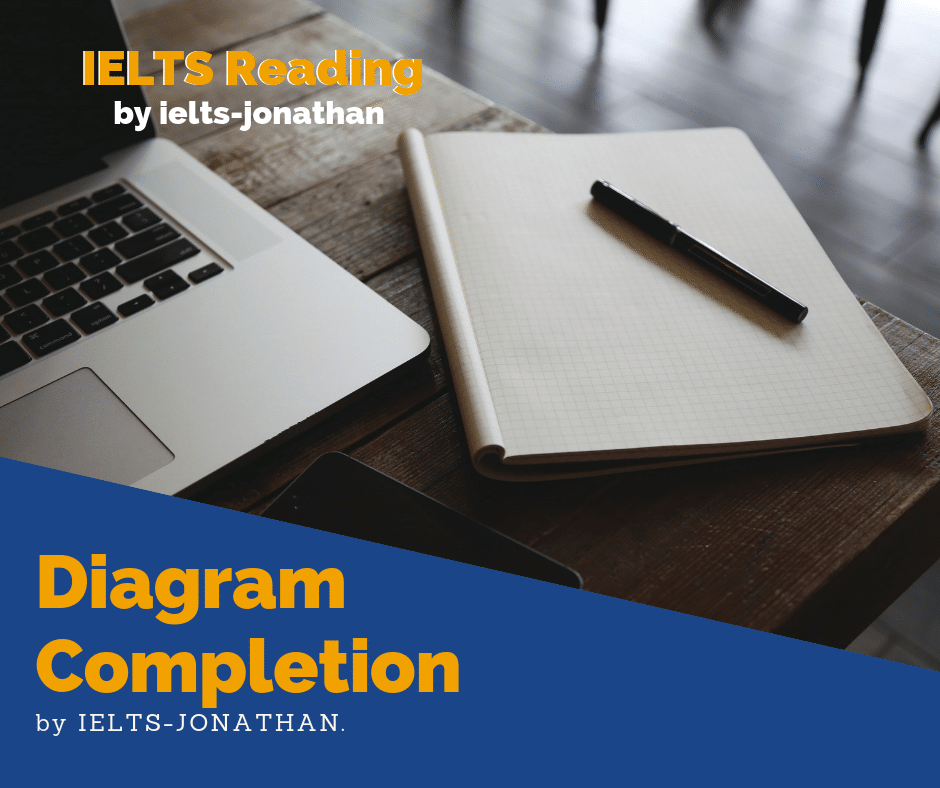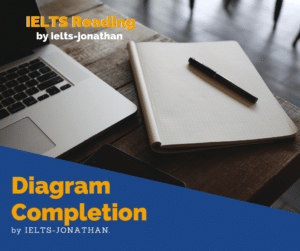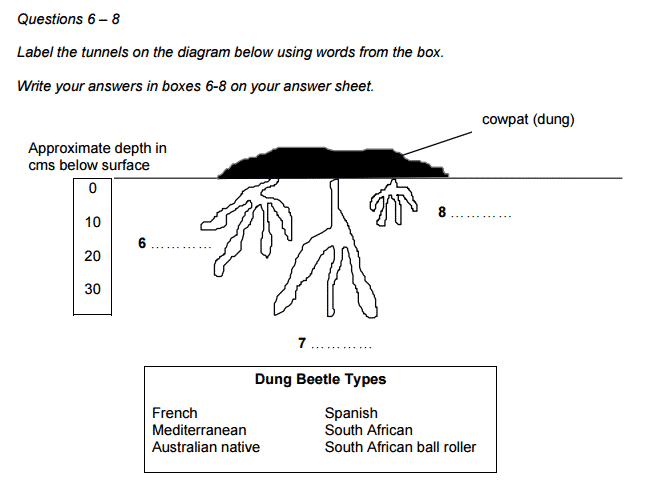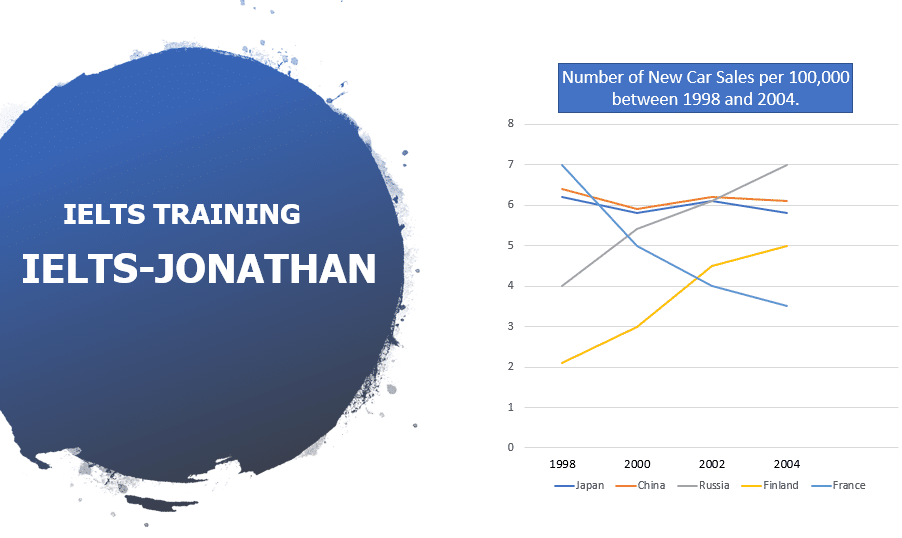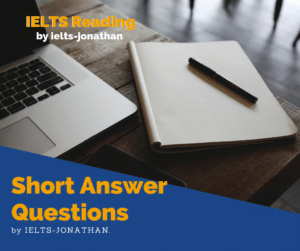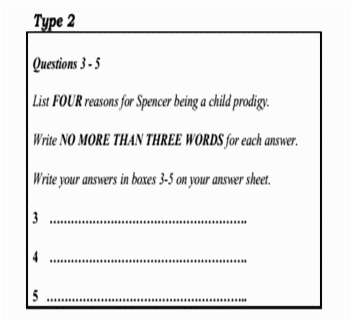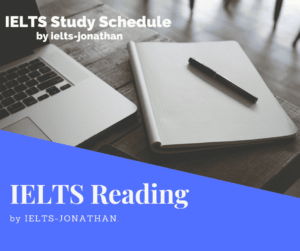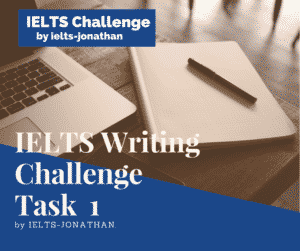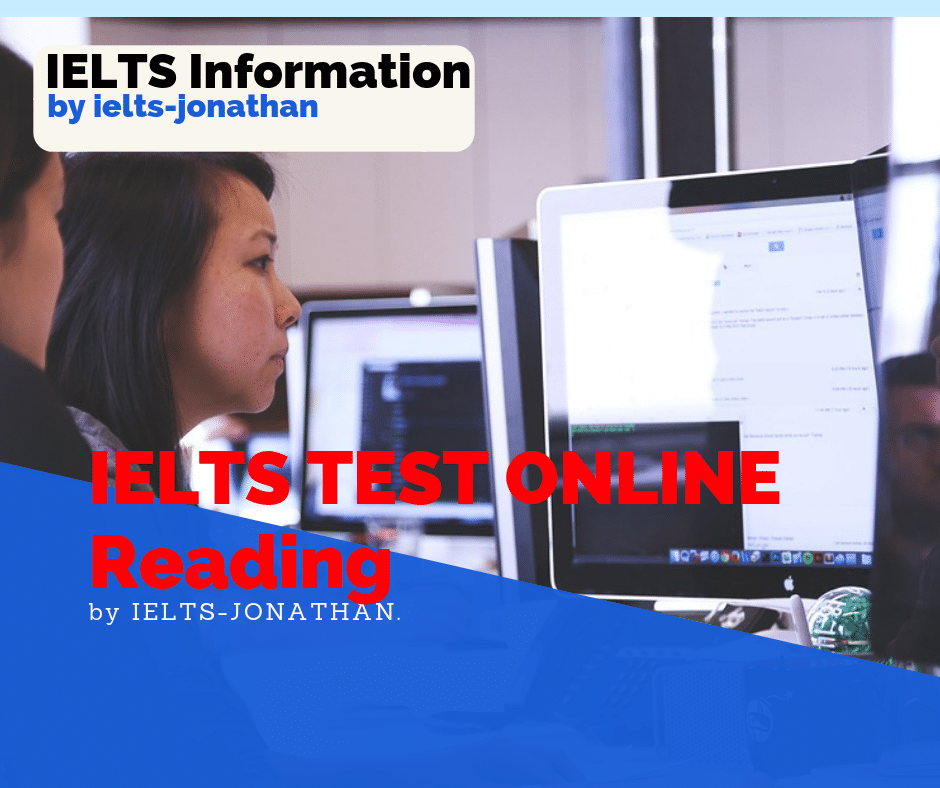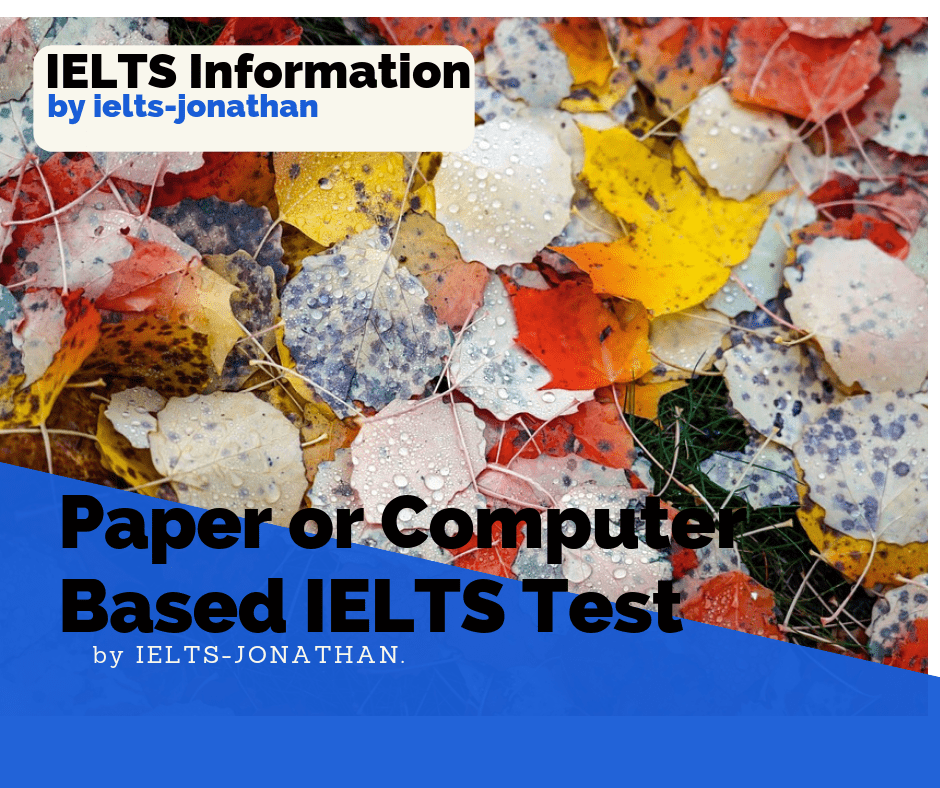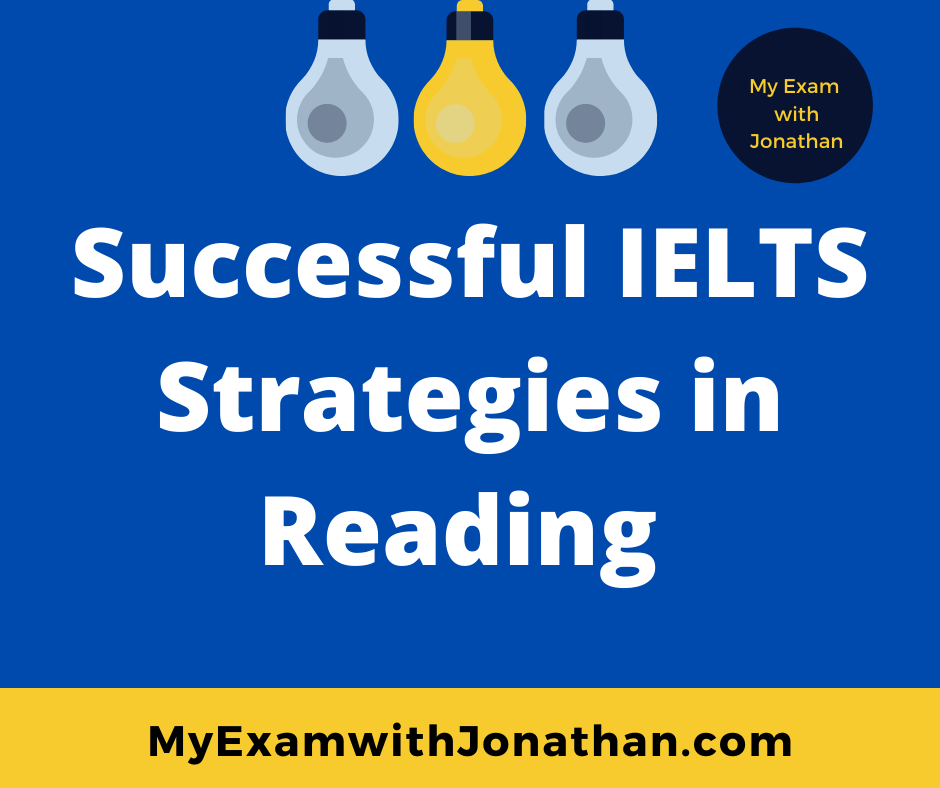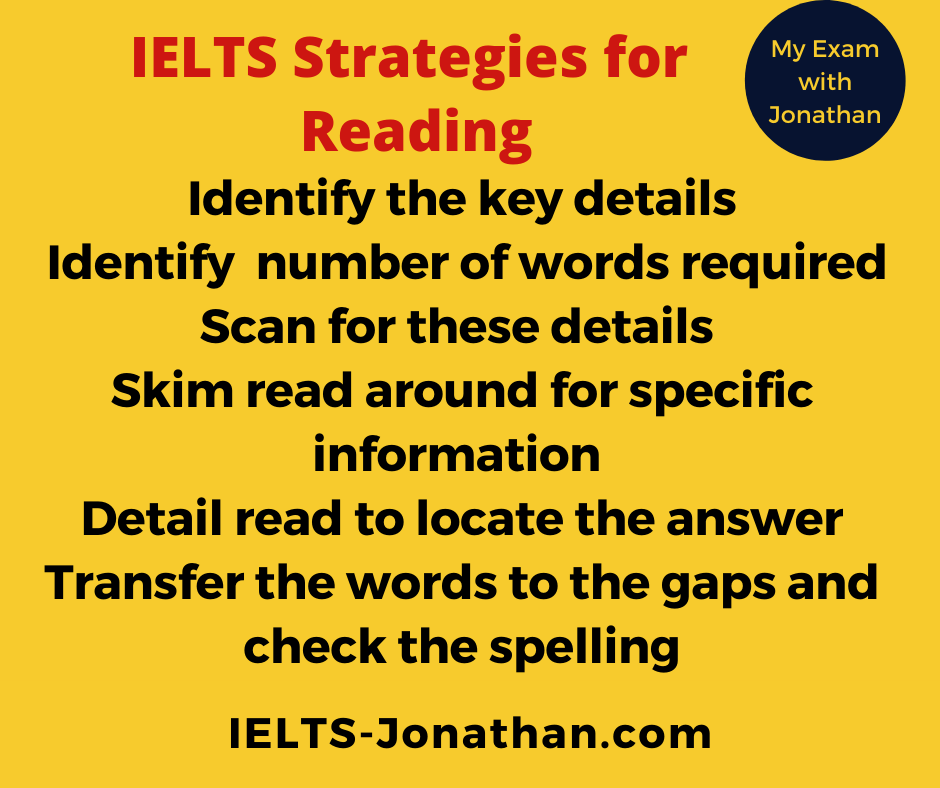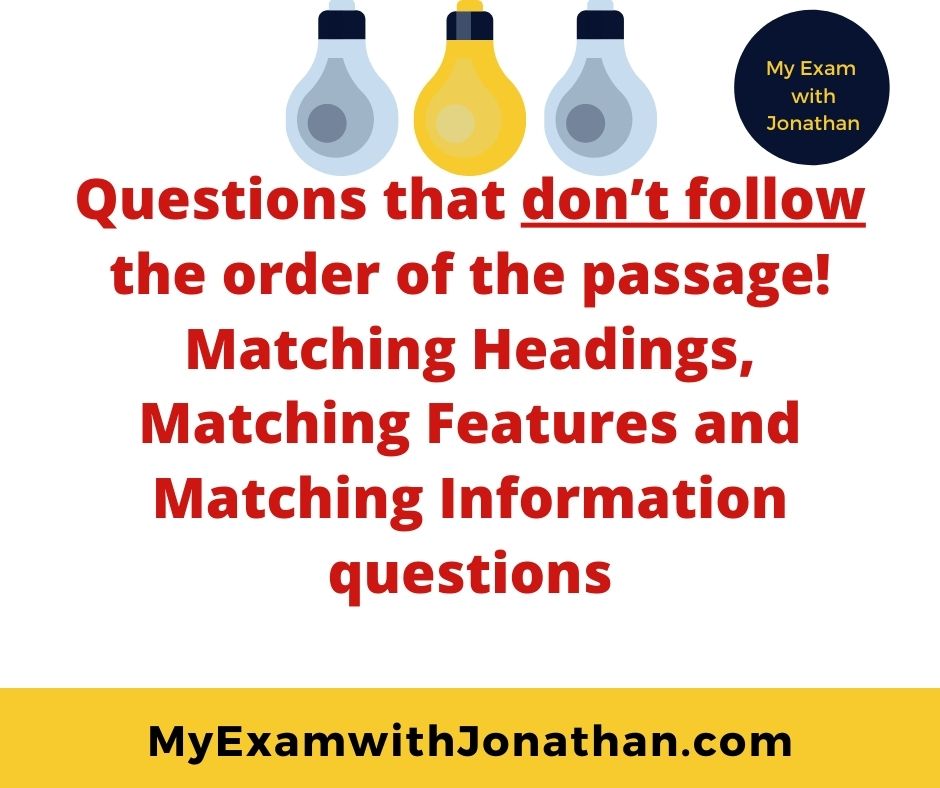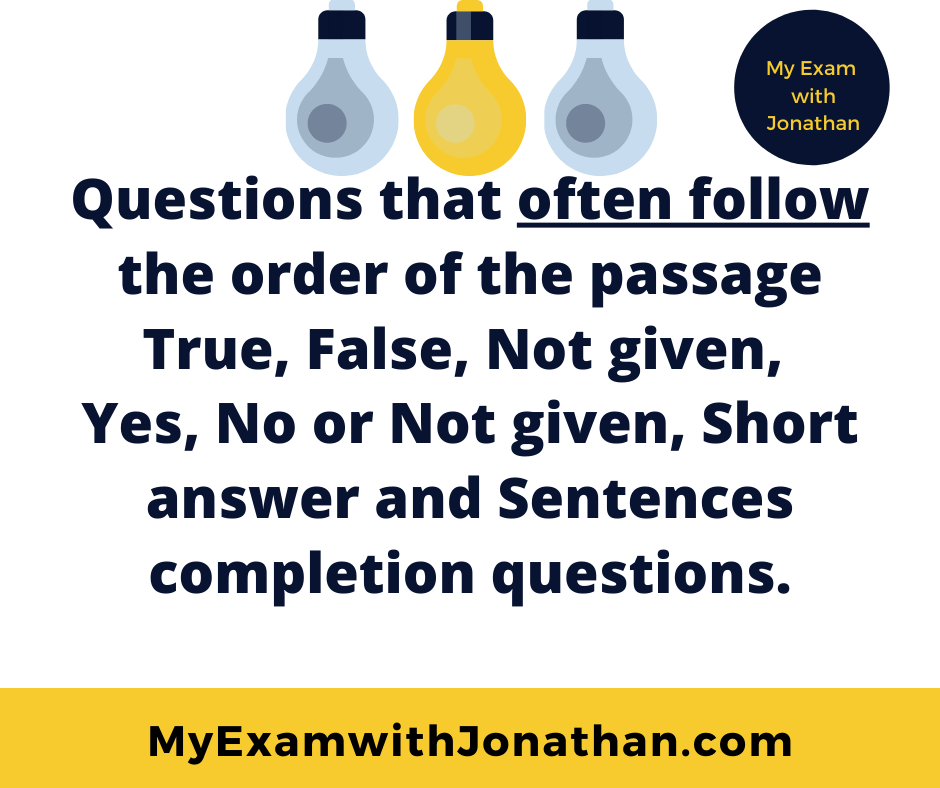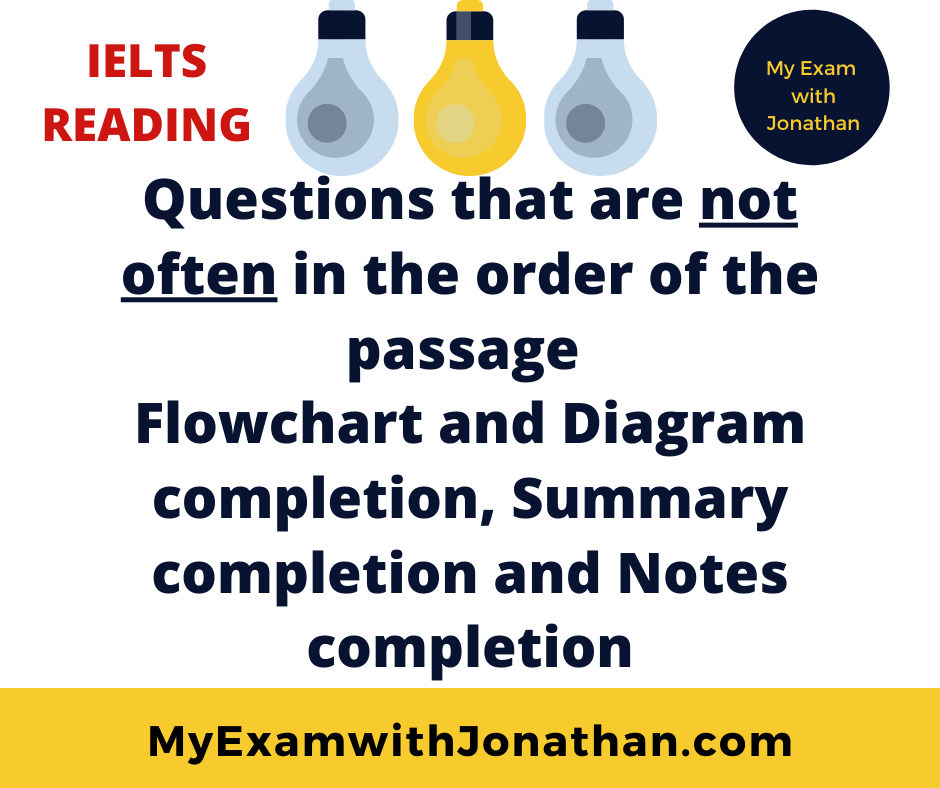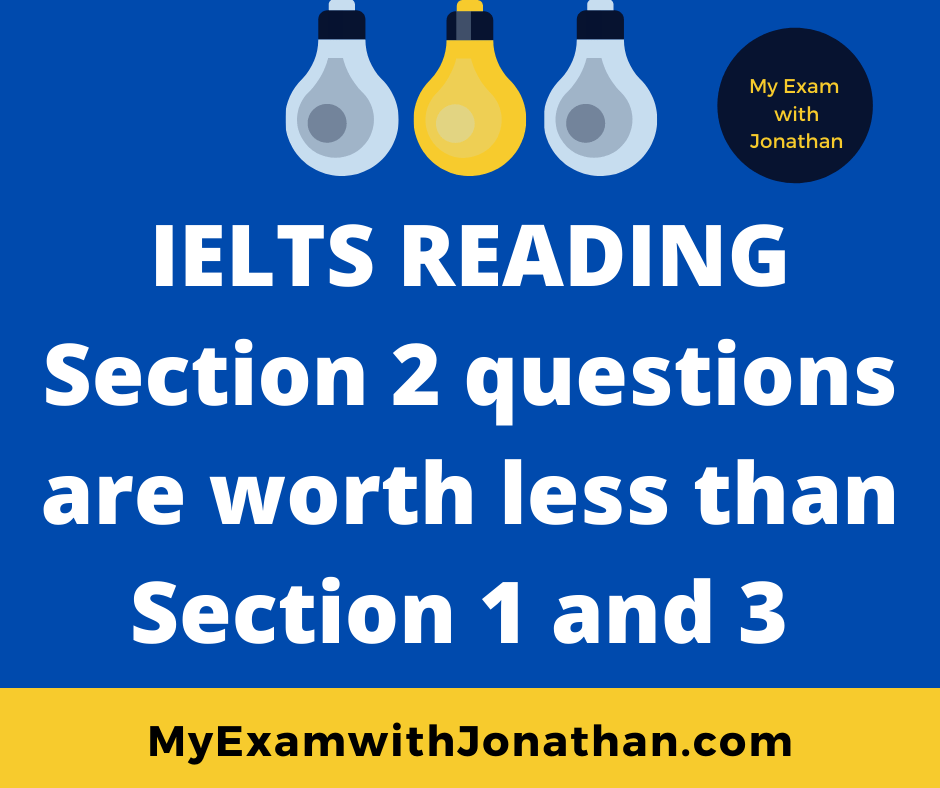Test Format
The reading section lasts for one hour and the exam format for the Reading section is 3 reading passages and 40 questions.
Each reading passage has 3 or 4 different types of question to answer.
Therefore, in order to be best prepared for your test, you should make sure you have practised each type of questions.
I have given you an example of a Diagram Completion Question.
I have summarised the question type for you below by describing the skills you need and the tips you can use to improve your score.
Here is the example
IELTS DIAGRAM QUESTION
And here are the Task Requirements, Skills and Tips.
The Task:
You need to label a diagram using the correct word from the passage.
Skills needed:
You need to be able to scan and locate information in the reading passage.
You need to be able to relate the information to the diagram.
You need to be able to choose the most suitable words.
Hints and Tips
You should identify the type of word you need, i.e. is it a noun, a verb, an adjective etc.
You should scan the reading passage for information.
You should paraphrase vocabulary in the text.
You should read the instructions and check how many words you can use.
You should understand the answers come in order.
You can use tips and information on this website to help make it easier to obtain a higher score, but remember you still need to work at learning the language to be successful.
Please share to someone you know and in the meantime take a look at my Facebook Page and Website for IELTS answers and you can also join my Facebook Group here too.
Good Luck
Jonathan
The Best Approach to Task 2 Writing
Paragraphing in Task 2 Writing
Writing – Benefits of a Foreign University Education
I’m Jonathan
I’ve taught IELTS and University English in more than a dozen universities and schools around the world.
I’m a parent, traveller and passionate about language teaching and helping students achieve their dreams.
Whilst living in Austria or working in Asia, I run IELTS courses to help students get to where they want to be.
If you are serious about IELTS, connect with me to see how I can help you.

